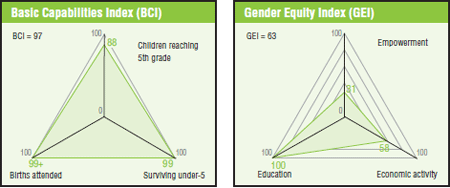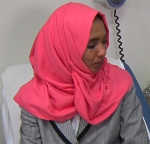Malta
Policy Coherence and Impact Measurement for Sustainable Development
Published on Fri, 2017-11-03 12:27
The lack of any substantive cohesion in Malta between a number of policies, such as education or health, with sustainability is a worrying factor, according to the Maltese Social Watch report. The general absence of statistical data, particularly of disaggregated data by various social and economic criteria, resulting from a lack of collection or from the prevalent praxis of not making it public makes the reporting difficult. Yet, there is an obvious lack of coherent and comprehensive approach to the legal and policy framework relating to the SDGs. This also belies a weak vision both on the action required at a national level and in terms of Malta’s role within the international community and its contribution (despite it being a small country) at the global level. |
Published on Fri, 2016-06-10 17:26
Malta will hold the Presidency of the European Union in the first half of 2017 and it should practice what it preaches, argues the Maltese NGO Kopin, "by ending European agricultural subsidies and other unjust practices that are harming and keeping poor undeveloped countries from reaching their potential". Justice and dignity for Maltese citizens cannot be separated from that of all citizens around the world and therefore the role of Malta as tax haven should be revised, since "tax evasion and money laundering are two major causes of global poverty and injustice". Further, the Mediterranean island should do more towards the integration of migrants, combatting xenophobia and "putting special emphasis on the rights of children and youth who are migrating, irrespective of their reasons to move". |
Published on Thu, 2013-03-14 22:09
Malta, like all New Member States of the European Union, pledged to reach a level of official development assistance (ODA) of 0.17% of its gross national income (GNI) by 2010 and to increase it to 0.33% by 2015. Does Malta keep its promises to eradicate poverty in the world? Civil society organizations have expressed their concern given that the government spends a large amount of ODA funds in the detention of irregular immigrants, many of them asylum seekers, the vulnerability of most of which is recognized through their refugee status or other forms of protection. Although the improvement in the distribution of ODA should be noted, 88% of bilateral aid is not clear. This is the reason why the government has been most criticized by NGOs in Malta and abroad. |
|
Published on Mon, 2012-03-19 08:58
In terms of gender equity Malta lags well behind the European average, and also behind the its closest neighbours in that region. |
|
Source: . Published on Wed, 2007-05-16 10:14
|
SUSCRIBE TO OUR NEWSLETTER







